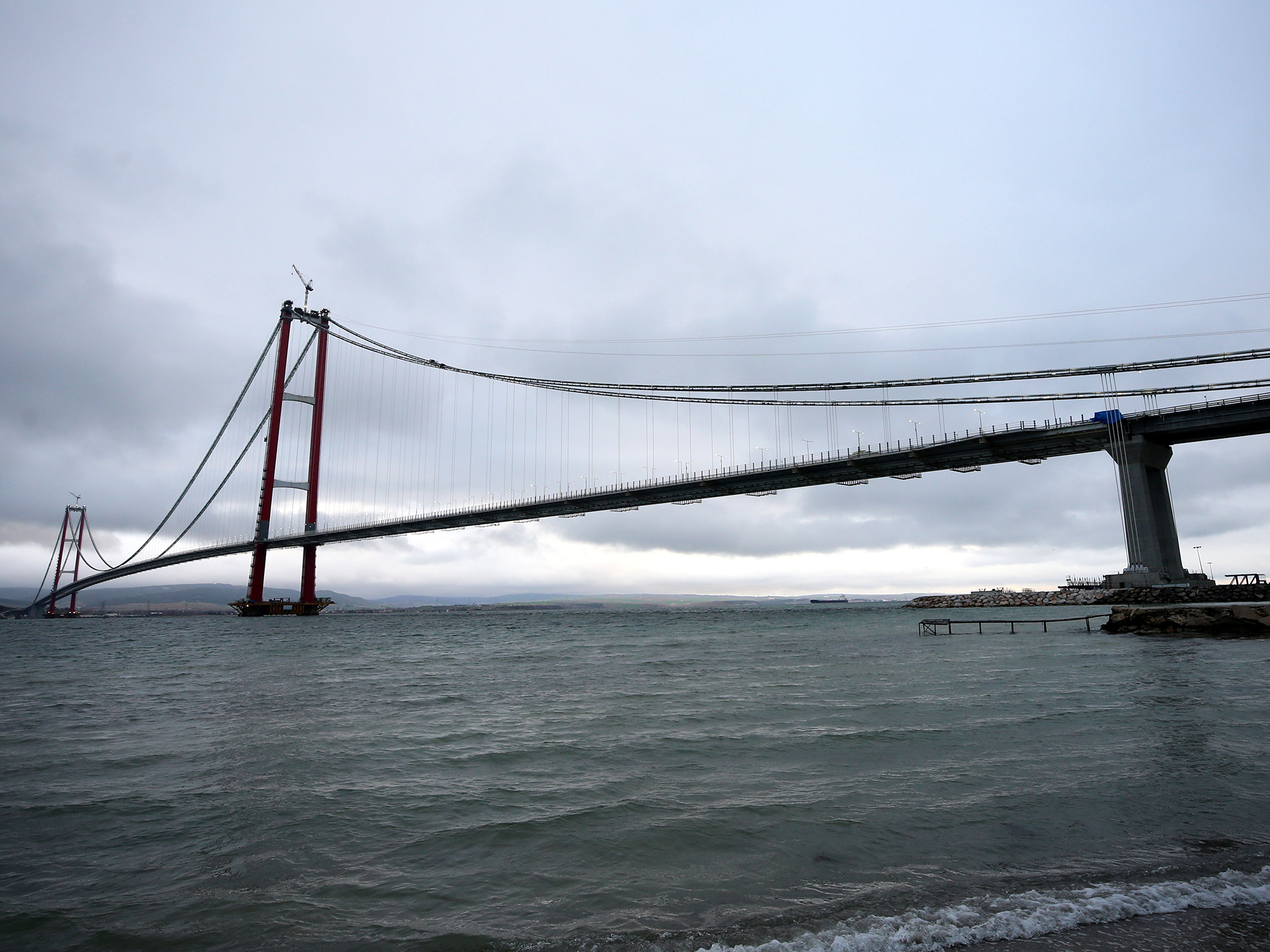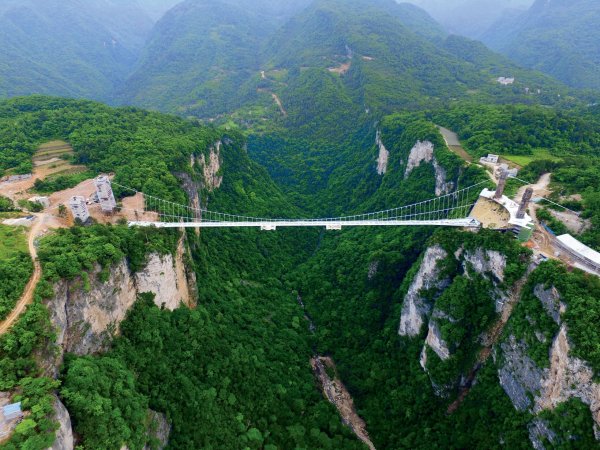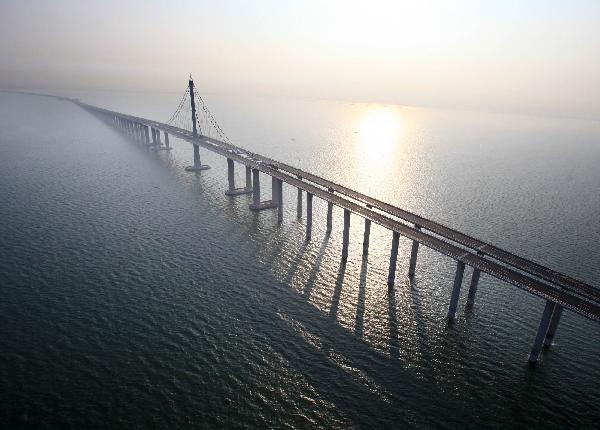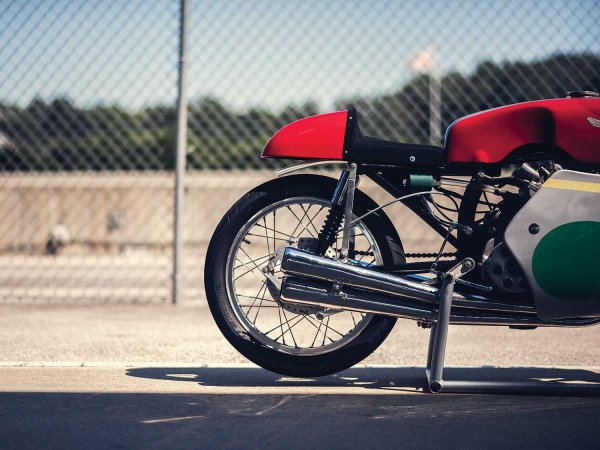

On a good day, commuters traveling between the city of Lapseki on Turkey’s Asian side and the city of Sütlüce on its European side could expect a ferry ride that takes at least an hour and half across the Dardanelles Strait to reach their final destination. On some days, when the ferries are particularly crowded, this commute could take up to five hours.
Now, thanks to the opening of a new suspension bridge across the strait this month, travelers can zip across this geographic divide in just six minutes flat. Dubbed the 1915 Çanakkale Bridge in reference to 1915 battle fought at the strait during WWI, this structure currently holds the world record for the longest suspension bridge in the world as measured by the distance between its two towers.
The 1915 Çanakkale Bridge is charged with both symbolic and engineering significance. Here’s how it stacks up, by the numbers.
15,118 feet long
When it comes to the length of a suspension bridge, there are two main numbers to keep in mind: the total length of the bridge and the longest span of its suspension. In this case, the Turkish bridge is 15,118 feet along its total length. Prior to the 1915 Çanakkale Bridge being built, the suspension bridge with the longest span and total length in the world was the Akashi Kaikyo Bridge in Japan. It connects the islands of Honshu and Awaji with a total length of just under 13,000 feet and a longest span of 6,532 feet.
In addition to beating the Akashi Kaikyo bridge in total length, the 1915 Çanakkale bridge also beats it in longest span with a distance between towers of 6,637 feet. In meters (2,023), this length is also meant to commemorate 2023 as Turkey’s 100-year anniversary after the dissolution of the Ottoman Empire.
Brian Brenner, a professor at Tufts University who researches the structural engineering of bridges, says that when it comes to what type of bridge design to choose to cross these great lengths, it’s no surprise that both Turkey and Japan opted for a suspension bridge.
“Suspension bridges are the structural type that provide for the longest spans,” he says by email. “A suspension bridge can often be built over bodies of water with active marine traffic in a way that limits impact to boating below during construction, which is an advantage.”
When building over water ways, Brenner says that part of the advantage of having a suspension bridge is that it needs fewer structural posts to dig into either hard material like rock or deep on a waterway’s floor.
They’re also just iconic, he adds. After all, can you picture San Francisco without imagining the Golden Gate Bridge suspended over San Francisco Bay?
318 meters high
In line with other symbolic elements of the 1915 Çanakkale Bridge, the height of its towers are no different. This height—318 meters high, or roughly 1,043 feet—is meant to represent the date, March 18, which is not only the day the bridge opened but also marks the day on which Turkey remembers naval losses at Gallipoli during WWI.
However, the height of the tower also has engineering significance as well, Brenner says.
“As the span gets longer, the forces and dimensions of the bridge increase,” Brenner says. “So the towers need to be taller to support the cables.”
2.5 billion euros
With great height and length also comes great cost, at least for the 1915 Çanakkale Bridge. Originally proposed in 2017, the construction of this bridge has cost €2.5 billion, or roughly $2.7 billion, and was carried out by both Turkish and South Korean companies. According to Turkish president Recep Tayyip Erdoğan, the cost to cross the bridge will be 200 Turkish Lira, or a little under $14.
[Related: Millions of US households are now part of a new affordable internet program]
While the construction of the bridge wasn’t cheap, Erdoğan has said that he expects a big return on investment when it comes to fuel consumption saved by crossing the strait more efficiently – as much as €415 million or $458 million euros saved per year, according to Erdoğan.
Beyond 6,637 feet
The 1915 Çanakkale Bridge may currently hold the world record for longest suspension bridge, but Brenner says it shouldn’t necessarily rest on its laurels. The Strait of Messina Bridge proposed in 2009 to connect mainland Italy with the island of Sicily would out-span the 1915 Çanakkale Bridge by nearly double. However, the Italian bridge project has met many snags along the way and doesn’t currently have a projected completion date.
Regardless of who wears the crown next, Brenner says that future suspension bridges attempting to span further distances may need a new design to limit their susceptibility to risk factors like wind.
“It may be that engineers are starting to approach the limit for span length for a traditional suspension bridge, such as what has been designed for the 1915 Çanakkale Bridge, the Golden Gate Bridge, and other suspension bridges,” he says. However, he notes that many engineers are looking into modified shapes and structural arrangements.
One alternative on the table is something called a “hybrid” design, Brenner says, which aims to combine suspension and cable-stayed bridge types. Sturdier than suspension alone, a solution like this may be the answer to building even longer bridges in the future.
Update on March 31, 2022: Readers interested in learning more about how suspension bridges around the world measure up against one another should consult this helpful explainer about the Mackinac Bridge in Michigan. As it notes, suspension bridges typically earn their length rankings by taking into account the length from main tower to main tower—their main span. This new bridge in Turkey boasts a main span of 6,637 feet. By contrast, the runner up—in Japan—has a main span of 6,532. The Mackinac Bridge has a main span of 3,799 feet, putting it in the top 30 of suspension bridges around the world when measured by their main span.
Correction on March 28, 2022: Due to an editing error, this article mistakenly referred to 15,118 feet as the measurement of the bridge’s span between its two towers, not its total length. The article has been updated to clarify the distinction.














